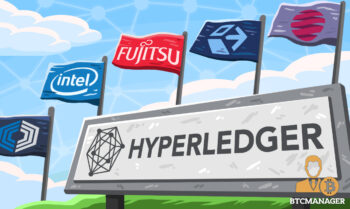2018-9-24 15:07 |
Nothing in recorded history has conclusively proven the phrase “knowledge is power” better than the rise and rapid proliferation of data-driven marketing. It is no exaggeration to say that data, including it’s seemingly effortless availability and idealistic promises for the future, has touched and transformed every aspect of every economy on the globe.
Federal and municipal governments use data to predict everything from infrastructure needs, to budgets, to how many 6th grade teachers their district will need to hire 12 years down the road. Data is driving global changes to public policy and environmental awareness, both in the United States and in distant developing nations. Scientists use data to educate, inform, and ultimately lobby for change.
For example, the use of big data has made substantial changes and improvements in the healthcare industry. Starting with the human genome mapping project, a constantly evolving and improving endeavor that promised health and healing capabilities that not only delivered, but exceeded our wildest dreams, healthcare has been at the forefront of data usage since its inception.
Now, with the implementation as well as data-proven success of programs such as biometrics-based key preventative health screenings and disease risk assessments, healthcare continues to lead the charge toward a date-driven world.
Perhaps most striking for daily life, however, is the use of data in economy. It is a part of simple grocery purchases and household items, all the way through larger purchases like homes, vehicles, and even vacations. The global data market is projected to reach 42 billion USD this year, a number that could double to $84 billion by 2024.
The Data ProblemThe worth of data is undeniable. But it is somewhat puzzling, simply because the commodity itself – data – is inherently flawed. Data is marred by inaccuracy. It is haphazardly gathered, at times in less than scrupulous ways. It is often unverified. Then it is purchased and distributed, with little to no input from the final data purchasers or the intended audience about its accuracy, usefulness, timeliness, or even target effectiveness.
A great daily example of this is online advertising, whether from Google Ads. Everyone has been frustrated by an onslaught of irrelevant and poorly targeted advertisements from online sources. Whether they are the fault of a search engine, a predictive analytics campaign, or some other unverifiable source, they are annoying.
This is even more true with larger markets and higher stake data banks, and it is quickly turning the data market into a solution that promotes quantity over quality, and fails to enable or encourage accuracy, autonomy, or customer service-focus on either end.
The SolutionSeveral data stakeholders have chosen to do things differently, especially in the blockchain space, where the incentivation of data accuracy has done what blockchain structures do: disrupt things; in this case, the data marketplace.
Decentralized platform developers soon conceived the idea of direct incentivation for data usage. This premise puts individuals in control of who sees and uses their data, and how and where it is used through providing incentives for the distribution of personal information. Companies like Fysical and Streamr provide incentives for data use through their data marketplaces, followed by a slew of other companies that allow users to monetize their data.
However, another company poised to transform the data marketplace world with a revolutionary idea is Rebloc. Rebloc offers dynamic staking through a blockchain data marketplace, as opposed to a fixed staking ratio. A dynamic staking ratio platform can potentially solve all of the challenges that a traditional fixed staking ratio faces. It would allow for participants to signal data quality, while at the same time discourage those same participants from simply passing a fixed threshold, and encourage riskier members to provide data at a lower stake.This mechanism, coupled with a data validation layer of independent participants whose role is to compare and authenticate data, creates a simple and effective way for all stakeholders to purchase and sell validated data. Currently structured to service the $25 billion real estate market, Rebloc clearly recognizes that both high stakes purchases as well as investments are heavily susceptible to skewed results from inaccurate data. The Rebloc real-time indexing protocol also enables fast transmittal of accurate data, another ongoing issue in real estate.
In true blockchain fashion, the Rebloc team envisions their concept across all markets, providing unlimited data validation capacity for all users of data marketplaces, which, with the continued growth of data usage, will soon be everyone.
While the data industry continues to grow, companies that provide ways to make that data genuinely reliable and verifiable provide a much-needed structural center to the industry. By providing real world solutions for data usage, these companies will create the necessary infrastructure to take big data use to the next level.
The post Blockchain Companies Re-envisioning Data Validation for the Future appeared first on CoinSpeaker.
origin »Bitcoin price in Telegram @btc_price_every_hour
Streamr DATAcoin (DATA) на Currencies.ru
|
|
























